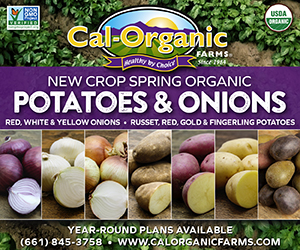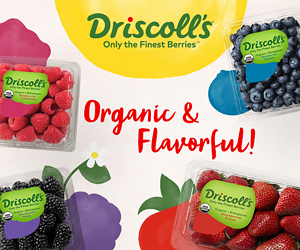Gahl Crane is sales director for Eco Farms, a grower-packer-shipper based in Temecula, California, that is celebrating its 50th anniversary this year. Specializing primarily in avocados and organic citrus, Eco Farms sources its fruit from California, Mexico, the Dominican Republic, Colombia, Peru, and Chile. OPN caught up with Gahl for a chat about Eco Farms’ organic commodities, its customer base, the company’s partnership with Oppenheimer, and more.
Gahl Crane, Sales Director, Eco Farms
How long have you worked at Eco Farms, and what led you to take a position there?
I’ve been with Eco Farms for almost six years now. Eco’s one of the early avocado pioneers and players—we’ve been around since the early 70s. I'd known about the company and a lot of people that worked there for a long time, so I was well aware of its great reputation. And I really wanted to work for a company like Eco that not only had a good reputation but also owned orchards, packing houses, and warehouses—had the whole infrastructure, from the farm to the retailer.
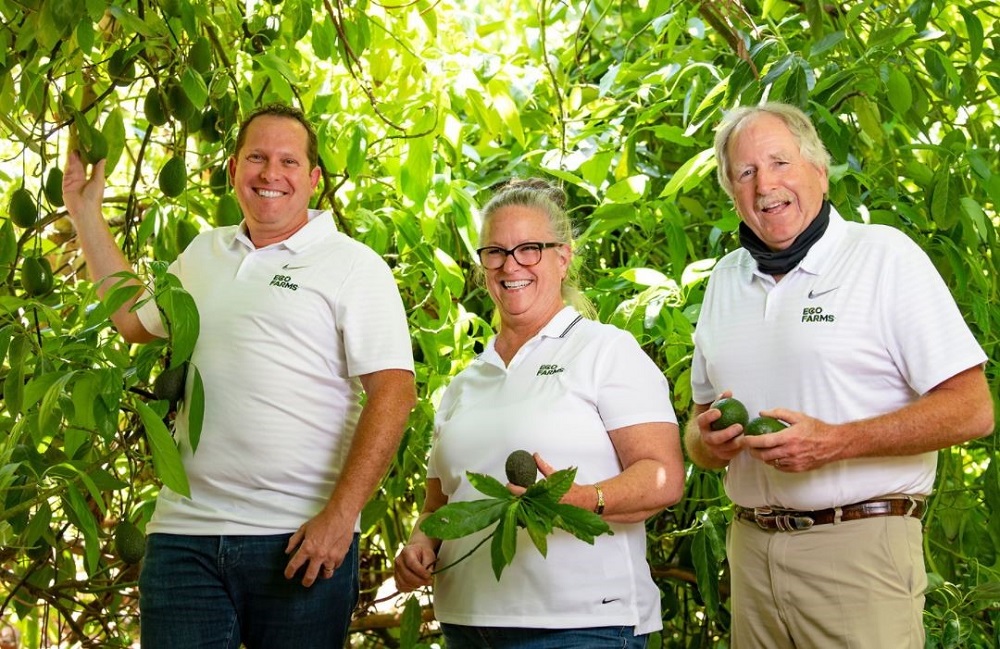
Gahl Crane, Sales Director; Enola Price, Field Support and Food Safety Manager; and Steve Taft, President and Founder, Eco Farms
Prior to Eco Farms, had you had significant experience with organics?
I’d had a little bit. It was always fairly small compared to conventional avocados. But the category has been growing for some time. So I was selling a whole lot more organic avocados 5-10 years into my career than when I started back in 2005. It’s been a real joy to see the category grow!
"Eco’s one of the early avocado pioneers and players—we’ve been around since the early 70s." – Gahl Crane
What commodities does Eco Farms offer, particularly in terms of organics?
We offer Hass avocados from all the major producing countries—US (California), Mexico, Peru, Chile, the Dominican Republic, and Colombia. And we source organic from all those countries except Chile (because Chile doesn't really produce organic avocados).
We also do organic and conventional green skin avocados (e.g., Zutano, Bacon, Fuerte) out of California. Those are typically available November, December, and January. So that's a nice niche. Retailers love to carry those because it's something a little different. It complements our Hass avocados, which make up like 99 percent of avo sales.
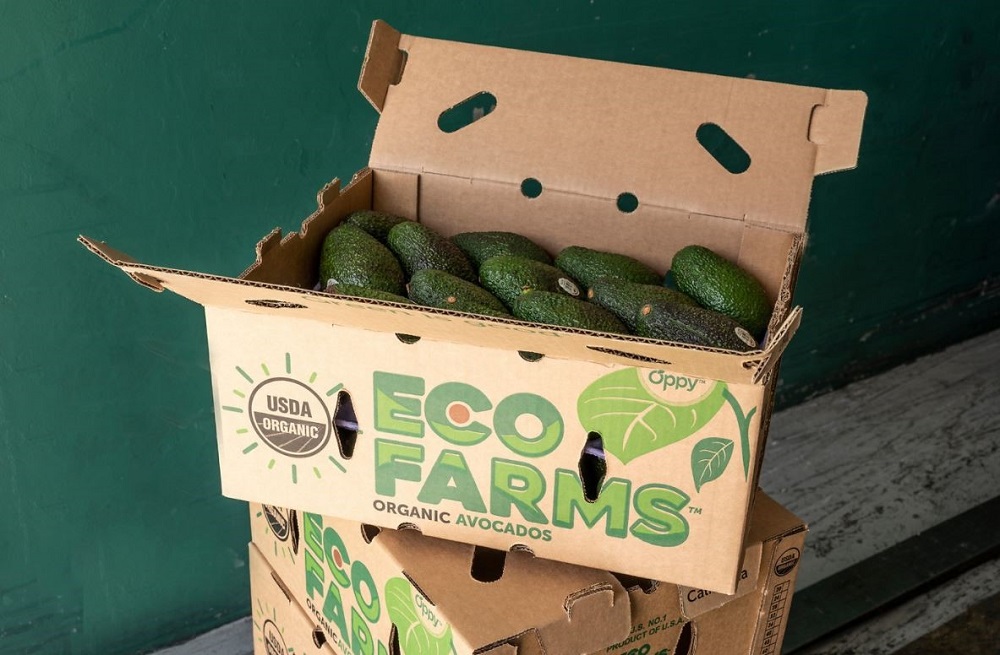
Eco Farms avocados
We also offer predominantly organic citrus. Eco started off doing both conventional and organic citrus back in the 70s and 80s. And as some of the large citrus companies grew to have huge market shares, we found it to be more reasonable to compete if we focused on organic. We offer organic navels, Valencias, tangerines, Tangos, limes, lemons, Meyer lemons, grapefruit, blood oranges, and satsumas. And then we also have a small organic dragon fruit program.
“I was selling a whole lot more organic avocados 5-10 years into my career than when I started back in 2005. It’s been a real joy to see the category grow!” – Gahl Crane
We pack everything in our headquarters packing house in Temecula. Even if the fruit is grown in the Central Valley or Ventura or Riverside or San Diego or the desert, it all comes to our packing house where we like to have control over it and make sure it's meeting our standards.
What percentage of Eco Farms’ sales are organic?
About 15-20 percent for avos and 90-plus percent for citrus.
Eco Farms citrus
Can you describe your customer base and distribution area?
Our fruit is distributed all over the country and also into Canada. We sell to wholesalers, national chains, regional chains, independents—we're very well-balanced. One thing that's been a big success for us is being a one-stop shop for some of the chains and wholesalers. It’s been a large part of our business to be able to cover several commodities for a particular chain.
We also do some foodservice. As we all know, foodservice is not a huge part of the organic business, but we have seen some growth there—not as big as retail but notable to keep in mind as organics grow in popularity, with younger shoppers especially.
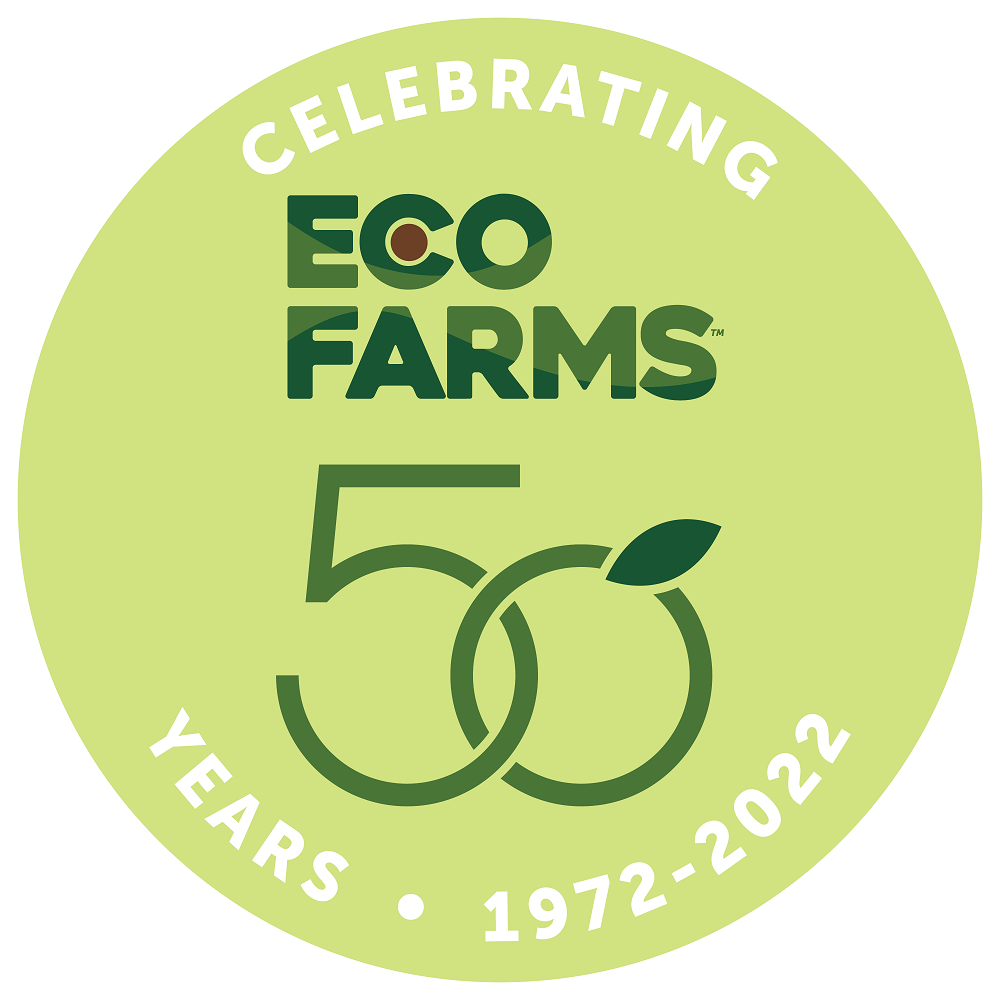
What would you say are some of the biggest challenges that your growers face?
Water continues to be an issue—and it’s not going to go away! Lack of water and warmer temperatures can create some challenges with sizing for both citrus and avocados. Sometimes the sizing is just not there, or it takes longer to get to the sizing profile that the market demands.
"As we all know, foodservice is not a huge part of the organic business, but we have seen some growth there—not as big as retail but notable to keep in mind as organics grow in popularity, with younger shoppers especially." – Gahl Crane
That said, I think markets have been generally cooperating. I’ve just been so impressed with how retailers understand the dynamics and the realities that we're growing a product; we're not just producing it in a factory. For example, retailers have been very flexible on sizing and on timing, pushing promotions to a specific time when the sizing is better. And that's really what is key to organic success—when you have everyone communicating and working together.
Even though organic avocados sometimes have a higher FOB cost, they continue to be incredibly promotable. Retailers are not shying away because of prices. Consumers see value in organic avocados. So we see great success on the retail level promoting them. It seems like 5 or 10 years ago, things had to be cheap in order to promote. But with the flavor and all the positive nutritional benefits of eating avocados, they’re very promotable at a price that offers a good return to the grower.
"Retailers have been very flexible on sizing and on timing, pushing promotions to a specific time when the sizing is better. And that's really what is key to organic success—when you have everyone communicating and working together." – Gahl Crane
In 2020, Oppy took a 65 percent stake in Eco Farms. How has that impacted your operation?
It’s allowed us to grow our business and expand relationships on the retail side in particular because Oppenheimer sells a bunch of different items (organic and nonorganic) to all the top regional and national chains. So there's a lot of synergies there to service some of these chain stores with several different commodities, with us covering avocados and organic citrus and Oppy covering things like apples, strawberries, kiwi, and a whole slew of other organic items.
What are Eco Farms’ plans for the future?
We’ll be expanding our growing footprint in California, and we’ll also be expanding and modernizing our facility in Temecula, including our avocado ripening capabilities. We also plan to grow our organic import citrus program and to continue growing our avocado imports.

